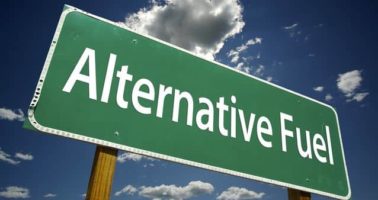The 2014 Alternative Fuels Infrastructure Directive contains a package of measures for the deployment of alternative fuels and infrastructure in the EU. The Commission will evaluate how effective the Directive and its measures have been and whether they are still relevant in view of recent technological advances and market developments.

Policy context:
The Long-Term Climate Strategy of the Commission shows how Europe can lead the way to a climate-neutral economy by 2050. The promotion of low- and zero-emission vehicles running on alternative fuels is a key part of a system approach to the decarbonisation of our mobility system.
Directive 2014/94/EU on deployment of alternative fuels infrastructure creates a common framework of measures
for deployment alternative fuels infrastructure in the EU. Building-up an infrastructure network for vehicles and vessels is meant to reduce oil dependence and mitigate environmental impacts of road transport, to develop a single market for alternative fuels infrastructure along urban areas and nodes and the core network of the TransEuropean Transport Network. Having a commonly available infrastructure supported by a framework of measures is expected to support accelerated take up of alternative fuelled vehicles and vessels.
The Directive requires Member States to set up long-term National Policy Frameworks (NPFs) for the development of the market as concerns alternative fuels and the planning of the deployment of relevant alternative fuels infrastructure. It also stipulates requirements for rollout of alternative fuels infrastructure along the core network of the Trans-European Transport Network (TEN-T) and its urban notes - with different milestones for 2020, 2025 and 2030 for different alternative fuels. The Directive sets common technical specifications for recharging and refuelling stations and for consumer information.
The Action Plan on alternative fuels infrastructure of 8 November 2017 complements this policy framework with a set of supporting policy actions at EU level. These include additional financial support for infrastructure investments through the Connecting Europe Facility, outreach activities in Member States to explain policy objectives and financing opportunities or revised guidance for planning of alternative fuels infrastructure in urban areas.
Market development context
The overall market for alternative fuels infrastructure is still in its early stages, mainly due to the limited demand from overall vehicle fleets. Roll-out of infrastructure in many parts of the Union still depends on public support, including grants from the Connecting Europe Facility (CEF) . Grants from the CEF are increasingly combined with loans or private sector financing under the so-called blending approach under the CEF. The Commission concluded in its assessment of national policy frameworks that the current alternative fuels infrastructure in place matches well the demand of the current fleet of vehicles, albeit great differences exist between Member States and the uptake of alternative fuel vehicles has been lower than expected by many Member States. Hence, in view of future developments and recent announcements made by car anufacturers, the planning at national level does not adequately reflect estimated developments in certain markets, particularly for battery-electric passenger vehicles and trucks powered by liquefied natural gas.
In this context, questions of interoperability and market design arise. Moreover, the emergence and spread of urban vehicle access restrictions as well as electricity market redesign, including smart electricity grid management, point to the specific characteristics and needs of rolling out alternative fuels infrastructure in urban and suburban areas, which warrant additional policy attention. Specifically for electromobility, new actors such as mobility service providers have developed new services, leading to an increased need for interoperability - and a risk of stranded/ isolated solutions. The European Parliament has called upon the Commission to bring forward a revision of the Directive in its October 2018 plenary.
The Graz Declaration of the Informal Environment and Transport Council on 30 October 2018 reiterates the need for stepping up policy actions to accelerate the market introduction of low- and zeroemission vehicles, including the development of appropriate charging infrastructure.
Read the full Evaluation and Fitness Check Roadmap
Read the stakeholders feedback.
Read about related intiative FUEL EU.
Puedes consultar también la directiva anterior: Directiva 2014/94/UE

